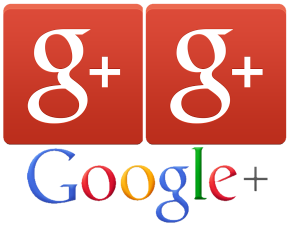
This is about something that caught me off guard, and I am fairly sure it will have caught others out the same way – so what exactly is it?
To explain – I am very keen on using social media, and have a footprint on most of the main platforms that would help my marketplace and business. Facebook, Twitter, LinkedIn, Kiltr, and of course – Google+.
I went about setting up the various accounts, and then proceeded to create business pages. All went well. I had a personal Facebook page and then a company page. I had a personal Google+ page, and then went on to set up a company page.
Following me so far? Good! I was indeed a happy bunny, as all was progressing as I had expected. To bolster my knowledge, I attended various Social Media talks and workshops. One suggested getting your company listed on (what is now) Google Local Listings – so I went about doing this. I registered my location and opening hours, and thus got my business on Google Maps. This means that when someone performs a Google search for me, my company pops up on the right hand side of the screen with all my details. I checked all was working, and yes – there it was! Meanwhile my company page on Google+ was gaining visitors and followers – all was just as it should be.
Now this was around two years ago, and I have grown the page to get it where I want it, everything seemed to be going in the correct direction.
So why is this a Double Google+ experience?
Well this year I attended another talk on social media and the speaker displayed the Google+ page of another business, it had all the default settings and it appeared no effort had been spent on it. I sat thinking how glad I was that I had spent the time on my page.
Anyway, I went back to my desk and searched for my company in Google – it was (happily) listed on page one of the results. I then clicked on the Google+ page link under my company name, and to my astonishment discovered my page had very few followers or visitors. It also had the default settings and appearance! I then launched my Google+ account and went to my company page there, and it was the fully customised and populated one – I somehow had two Google+ pages.
I researched and found out that Google creates a Google+ page on Local, but doesn’t explicitly tell you – however this is the one that any searchers will see. I realised that I really had to fix this. Further research led me to carry out the following procedure, and Google doesn’t make it particularly easy.
- Sign in to the Google Local page, this used my business email account – rather than my personal Google+ account – I then made my personal account a manager of the Local Google+ page. I then have to wait 19 days, yes 19 days, before I can make my personal email account the owner of the local page.
- 19 days later I logged in again with my business email to the Google+ Local page, and then was able to make my personal email address the owner.
- I was then given the opportunity to merge the Local page with my previously created business page. Once this option is chosen you are told which areas will be merged. This new merged page will then have the link on Google maps, and all your company details, as well as all the followers I had built up.
- I checked by searching in Google and clicking on the Google+ page link to find the old local page still there.
- Once you merge the pages you get the choice to delete the old page, which now shows up as backup of the company page. I deleted it and double checked a Google search to see if anything had changed. They had – and I now had the local page I wanted – the one I had originally set up and gained interest in.
So now hopefully you see the double Google+ problem I discovered, and then thankfully cured.
Please let us know if this has been useful.
Were any of you aware that this issue existed?
We’d love to hear from you!

 This is a phrase I hear often; usually when talking to business owners, or even employees working for someone. They tell me they are not project managers, and wonder why I am telling them about Microsoft Project?
This is a phrase I hear often; usually when talking to business owners, or even employees working for someone. They tell me they are not project managers, and wonder why I am telling them about Microsoft Project?